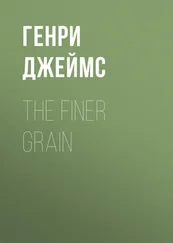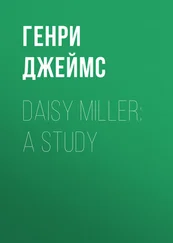Генри Джеймс - Sir Dominick Ferrand
Здесь есть возможность читать онлайн «Генри Джеймс - Sir Dominick Ferrand» — ознакомительный отрывок электронной книги совершенно бесплатно, а после прочтения отрывка купить полную версию. В некоторых случаях можно слушать аудио, скачать через торрент в формате fb2 и присутствует краткое содержание. Жанр: foreign_prose, foreign_antique, на английском языке. Описание произведения, (предисловие) а так же отзывы посетителей доступны на портале библиотеки ЛибКат.
- Название:Sir Dominick Ferrand
- Автор:
- Жанр:
- Год:неизвестен
- ISBN:нет данных
- Рейтинг книги:5 / 5. Голосов: 1
-
Избранное:Добавить в избранное
- Отзывы:
-
Ваша оценка:
- 100
- 1
- 2
- 3
- 4
- 5
Sir Dominick Ferrand: краткое содержание, описание и аннотация
Предлагаем к чтению аннотацию, описание, краткое содержание или предисловие (зависит от того, что написал сам автор книги «Sir Dominick Ferrand»). Если вы не нашли необходимую информацию о книге — напишите в комментариях, мы постараемся отыскать её.
Sir Dominick Ferrand — читать онлайн ознакомительный отрывок
Ниже представлен текст книги, разбитый по страницам. Система сохранения места последней прочитанной страницы, позволяет с удобством читать онлайн бесплатно книгу «Sir Dominick Ferrand», без необходимости каждый раз заново искать на чём Вы остановились. Поставьте закладку, и сможете в любой момент перейти на страницу, на которой закончили чтение.
Интервал:
Закладка:
Henry James
Sir Dominick Ferrand
I
“There are several objections to it, but I’ll take it if you’ll alter it,” Mr. Locket’s rather curt note had said; and there was no waste of words in the postscript in which he had added: “If you’ll come in and see me, I’ll show you what I mean.” This communication had reached Jersey Villas by the first post, and Peter Baron had scarcely swallowed his leathery muffin before he got into motion to obey the editorial behest. He knew that such precipitation looked eager, and he had no desire to look eager—it was not in his interest; but how could he maintain a godlike calm, principled though he was in favour of it, the first time one of the great magazines had accepted, even with a cruel reservation, a specimen of his ardent young genius?
It was not till, like a child with a sea-shell at his ear, he began to be aware of the great roar of the “underground,” that, in his third-class carriage, the cruelty of the reservation penetrated, with the taste of acrid smoke, to his inner sense. It was really degrading to be eager in the face of having to “alter.” Peter Baron tried to figure to himself at that moment that he was not flying to betray the extremity of his need, but hurrying to fight for some of those passages of superior boldness which were exactly what the conductor of the “Promiscuous Review” would be sure to be down upon. He made believe—as if to the greasy fellow-passenger opposite—that he felt indignant; but he saw that to the small round eye of this still more downtrodden brother he represented selfish success. He would have liked to linger in the conception that he had been “approached” by the Promiscuous; but whatever might be thought in the office of that periodical of some of his flights of fancy, there was no want of vividness in his occasional suspicion that he passed there for a familiar bore. The only thing that was clearly flattering was the fact that the Promiscuous rarely published fiction. He should therefore be associated with a deviation from a solemn habit, and that would more than make up to him for a phrase in one of Mr. Locket’s inexorable earlier notes, a phrase which still rankled, about his showing no symptom of the faculty really creative. “You don’t seem able to keep a character together,” this pitiless monitor had somewhere else remarked. Peter Baron, as he sat in his corner while the train stopped, considered, in the befogged gaslight, the bookstall standard of literature and asked himself whose character had fallen to pieces now. Tormenting indeed had always seemed to him such a fate as to have the creative head without the creative hand.
It should be mentioned, however, that before he started on his mission to Mr. Locket his attention had been briefly engaged by an incident occurring at Jersey Villas. On leaving the house (he lived at No. 3, the door of which stood open to a small front garden), he encountered the lady who, a week before, had taken possession of the rooms on the ground floor, the “parlours” of Mrs. Bundy’s terminology. He had heard her, and from his window, two or three times, had even seen her pass in and out, and this observation had created in his mind a vague prejudice in her favour. Such a prejudice, it was true, had been subjected to a violent test; it had been fairly apparent that she had a light step, but it was still less to be overlooked that she had a cottage piano. She had furthermore a little boy and a very sweet voice, of which Peter Baron had caught the accent, not from her singing (for she only played), but from her gay admonitions to her child, whom she occasionally allowed to amuse himself—under restrictions very publicly enforced—in the tiny black patch which, as a forecourt to each house, was held, in the humble row, to be a feature. Jersey Villas stood in pairs, semi-detached, and Mrs. Ryves—such was the name under which the new lodger presented herself—had been admitted to the house as confessedly musical. Mrs. Bundy, the earnest proprietress of No. 3, who considered her “parlours” (they were a dozen feet square), even more attractive, if possible, than the second floor with which Baron had had to content himself—Mrs. Bundy, who reserved the drawing-room for a casual dressmaking business, had threshed out the subject of the new lodger in advance with our young man, reminding him that her affection for his own person was a proof that, other things being equal, she positively preferred tenants who were clever.
This was the case with Mrs. Ryves; she had satisfied Mrs. Bundy that she was not a simple strummer. Mrs. Bundy admitted to Peter Baron that, for herself, she had a weakness for a pretty tune, and Peter could honestly reply that his ear was equally sensitive. Everything would depend on the “touch” of their inmate. Mrs. Ryves’s piano would blight his existence if her hand should prove heavy or her selections vulgar; but if she played agreeable things and played them in an agreeable way she would render him rather a service while he smoked the pipe of “form.” Mrs. Bundy, who wanted to let her rooms, guaranteed on the part of the stranger a first-class talent, and Mrs. Ryves, who evidently knew thoroughly what she was about, had not falsified this somewhat rash prediction. She never played in the morning, which was Baron’s working-time, and he found himself listening with pleasure at other hours to her discreet and melancholy strains. He really knew little about music, and the only criticism he would have made of Mrs. Ryves’s conception of it was that she seemed devoted to the dismal. It was not, however, that these strains were not pleasant to him; they floated up, on the contrary, as a sort of conscious response to some of his broodings and doubts. Harmony, therefore, would have reigned supreme had it not been for the singularly bad taste of No. 4. Mrs. Ryves’s piano was on the free side of the house and was regarded by Mrs. Bundy as open to no objection but that of their own gentleman, who was so reasonable. As much, however, could not be said of the gentleman of No. 4, who had not even Mr. Baron’s excuse of being “littery” (he kept a bull-terrier and had five hats—the street could count them), and whom, if you had listened to Mrs. Bundy, you would have supposed to be divided from the obnoxious instrument by walls and corridors, obstacles and intervals, of massive structure and fabulous extent. This gentleman had taken up an attitude which had now passed into the phase of correspondence and compromise; but it was the opinion of the immediate neighbourhood that he had not a leg to stand upon, and on whatever subject the sentiment of Jersey Villas might have been vague, it was not so on the rights and the wrongs of landladies.
Mrs. Ryves’s little boy was in the garden as Peter Baron issued from the house, and his mother appeared to have come out for a moment, bareheaded, to see that he was doing no harm. She was discussing with him the responsibility that he might incur by passing a piece of string round one of the iron palings and pretending he was in command of a “geegee”; but it happened that at the sight of the other lodger the child was seized with a finer perception of the drivable. He rushed at Baron with a flourish of the bridle, shouting, “Ou geegee!” in a manner productive of some refined embarrassment to his mother. Baron met his advance by mounting him on a shoulder and feigning to prance an instant, so that by the time this performance was over—it took but a few seconds—the young man felt introduced to Mrs. Ryves. Her smile struck him as charming, and such an impression shortens many steps. She said, “Oh, thank you—you mustn’t let him worry you”; and then as, having put down the child and raised his hat, he was turning away, she added: “It’s very good of you not to complain of my piano.”
Читать дальшеИнтервал:
Закладка:
Похожие книги на «Sir Dominick Ferrand»
Представляем Вашему вниманию похожие книги на «Sir Dominick Ferrand» списком для выбора. Мы отобрали схожую по названию и смыслу литературу в надежде предоставить читателям больше вариантов отыскать новые, интересные, ещё непрочитанные произведения.
Обсуждение, отзывы о книге «Sir Dominick Ferrand» и просто собственные мнения читателей. Оставьте ваши комментарии, напишите, что Вы думаете о произведении, его смысле или главных героях. Укажите что конкретно понравилось, а что нет, и почему Вы так считаете.












